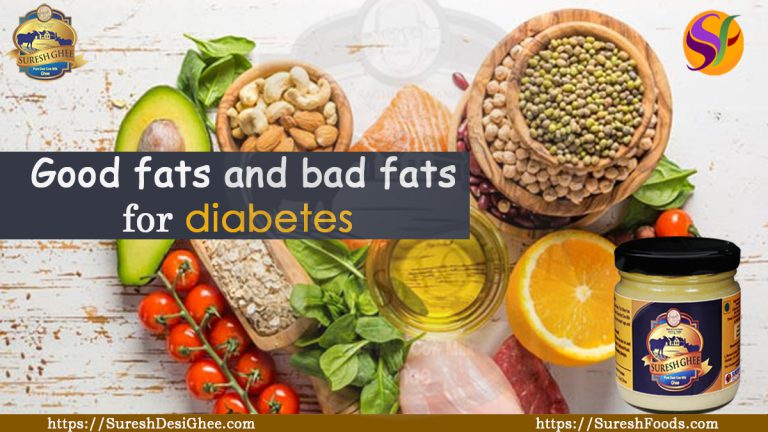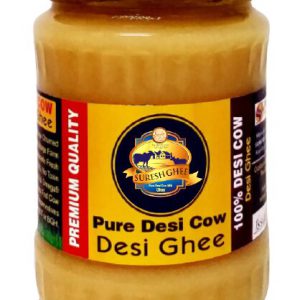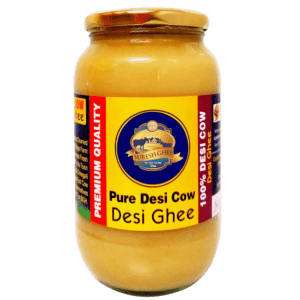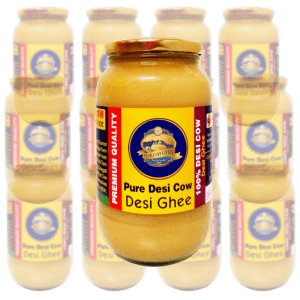Our body needs fat for energy and the smooth functioning of our organs. Yes, there are good fat and bad fat. There are fats that we should avoid, especially the hydrogenated oils so popular in processed foods.
But there are also fats that are good for us, even helpful to those of us with diabetes. Fats are essential to keep our cardiac and neurological systems healthy. “Bad” fats increase your risk for coronary heart disease, and need to be limited in your diet:
- Saturated fats
- Hydrogenated fats
- Trans fats
Saturated fats, which usually come from animal sources, are naturally solid at room temperature. Examples are lard, butter, milk fat, meat, chicken and pork skin, ice cream and cheese. Beware of coconut and palm oils as well. These tropical oils contain high amounts of saturated fats.
Hydrogenated fats are created by a chemical process that turns liquid vegetable oils into semi-solid or solid fats at room temperatures. Hydrogenation sometimes turns oils into what are called trans fats, a particularly unhealthy transformation that nonetheless has become a key ingredient for packaged snacks, baked items, stick margarine, shortening and fast foods. Avoid products made with hydrogenated or partially-hydrogenated oils.
It was interesting to learn that this way of eating improves heart health and decreases the risk of Type 2 diabetes. You have to limit how much you eat – even if considered “good” fats. These “good” fats are:
- Polyunsaturated fats
- Monounsaturated fats
- Omega-3 fatty acids
Polyunsaturated fats are vegetable oils that stay liquid at room temperature, and on the grocer’s shelves. Examples are safflower, corn, soybean, cottonseed and sunflower oils. Soft tub margarines, mayonnaise and salad dressings also contain polyunsaturated fat. Substitute these fats in place of saturated, hydrogenated, and trans fats to improve your ratio of good (HDL) to bad (LDL) cholesterol.
Monounsaturated fats are vegetable oils that also are liquid at room temperature. Examples are olive oil (and olives), avocados, canola oil, and peanut oil (and peanuts). Replacing saturated fats in your diet with monounsaturated fats can help lower LDL “bad” cholesterol without lowering the HDL “good” cholesterol.

Buy Pure Ghee Online : Order Now. Free Shipping
Omega-3 fatty acids from marine sources are considered heart-healthy, because they lower the level of triglycerides (or fats) and cholesterol circulating in your bloodstream. They also discourage unwanted blood clotting. Good sources are fatty fish – especially salmon, halibut, mackerel, tuna, sardines, sea bass, herring, pompano, and lake trout. Eat fish 2 to 3 times a week. Vegetarian sources of omega-3 fatty acids are flax seeds, walnuts, canola oil, soybean, and soy products; however, vegetarian sources may not be as effective.
Cholesterol
Your body makes some of the cholesterol in your blood. The rest comes from foods you eat. Foods from animals are sources of dietary cholesterol.
Cholesterol from the food you eat may increase your blood cholesterol, so it’s a good idea to eat less than 300 mg per day. Cholesterol is required on the label if the food contains it.
- Sources of cholesterol include:
- High-fat dairy products (whole or 2% milk, cream, ice cream, full-fat cheese)
- Egg yolks
- Liver and other organ meats
- High-fat meat and poultry skin
How ghee is good for diabetes
Diabetic people suffer from extra blood sugar and it creates lots of physical hassle for diabetics. As a result, diabetic people should follow some strict rules on diet. Instead of using common cooking oils, modern dialecticians recommend the use of ghee for their patients. However, only good quality 100% pure grass-fed ghee is recommended for diabetics as good quality ghee can offer some special benefits for them.
- The fatty acids in grass-fed ghee aids in improving metabolizing and balancing high levels of blood sugar.
- Controlled carbohydrate consumption is extremely important for diabetics. If ghee is added to rice, it becomes simpler for the diabetics to digest the sugar from rice, effectively.
- The fats, which are found in ghee, help in absorbing the nutrients from the food that a diabetic consumes. This method helps in boosting the immunity system of the body that helps in efficient diabetes management.
- Consumption of pure grass-fed ghee goes a long way in helping to improve the functioning of the GLP-1, which is a vital gut hormone. By doing this, it empowers better secretion of the insulin hormone that helps in managing diabetes in a well-organized manner.
- The fat deposits, which are built up in the body get melted down by the right consumption of ghee thereby helping in managing diabetes better.
- Ghee is also known as a rich source of vitamins such as vitamin A, E, D, vitamin K, as well as beta-carotene. These are essential antioxidants that go a long way in managing diabetes with a positive result.
- When ghee is added to food, the otherwise carbohydrate high food with a high glycemic index such as parathas, rice, dosa, idly, etc. becomes low in the glycemic index and offers natural diabetic control.
Ghee as a clarified Butter having low carbohydrate, and low carbs diet is advisable for diabetic patient. Specially Desi Cow Milk Ghee made by the vedic process has more benefits than any other Ghee. Ghee is a source of healthy fat. Vitamin K2 present in Ghee, helps our body to absorb necessary vitamins in our food. To be healthy one should include at least 2 spoons of Ghee every day.
What are the uses of Plant Stanols and Sterols?
Plant stanols and sterols are helpful in blocking the absorption of sugar. Adding 2 grams of plant stanols and sterols in a day may help sugar level. Sources of plant stanols and sterols found in the margarine section of your grocery store.
Dietary rule do’s and dont’s
When you are eating food that includes maximum calories or fat it delivers an undesirable rise in blood sugar levels, along with sugar, you can lead to serious health issues such as nerve, kidney, and heart damage, long-term complications. You can limit it by avoiding bad eating habits and replacing them with healthy foods like fruit, vegetables, and whole grains. Keep glucometer with you so you can maintain records.
- Make sure not to skip meals and timing of intake of 3-time food.
- Avoid eating heavy food, rather than have it on the time difference.
- Do not eat more sugar in your food
- Less use of salty food.
- Avoid eating junk foods, tempting foods like chats, cakes, soda, ice cream, etc…
A balanced diet should involve necessary fatty acids, which can be gained from sources like fish, olives, nuts, fruits, and seeds.
Fats can be classified into two types:
1) Saturated Fat
2) Unsaturated Fat, comprising two subtypes:
– – Monounsaturated Fat
– – Polyunsaturated Fat
Monounsaturated and polyunsaturated fats play an important role in sustaining healthy cholesterol levels and shielding against heart disease. To sustain a healthy diet, it is necessary to include both unsaturated and saturated fats into your daily diets. Unsaturated fats are predominantly present in plant-based products such as peanuts, oranges, and olives, while saturated fats are commonly present in animal-derived items such as meat.
Omega-3, an important and essential polyunsaturated fat, is beneficial for complete well-being. One the best sources of omega-3 involve ghee, walnuts, soybeans, and fatty fish.
More than required consumption of saturated fat can lead to the accumulation of fat deposits and an increased risk of heart disease and high blood cholesterol levels. It is beneficial to carefully detect your daily consumption of both total and saturated fats.
Saturated fats have the potential to spike cholesterol levels and contribute to the development of arterial plaque, being an obstacle in the efficient circulation of blood and oxygen throughout the body. This, in turn, elevates the likelihood of experiencing a stroke or growing a cardiovascular diseases.
It is necessary to note that overindulgence in any dietary component can result in adverse effects. To sustain an optimal health, it is advisable to practice moderation in your dietary choices.






 WhatsApp us
WhatsApp us
Naveen m...